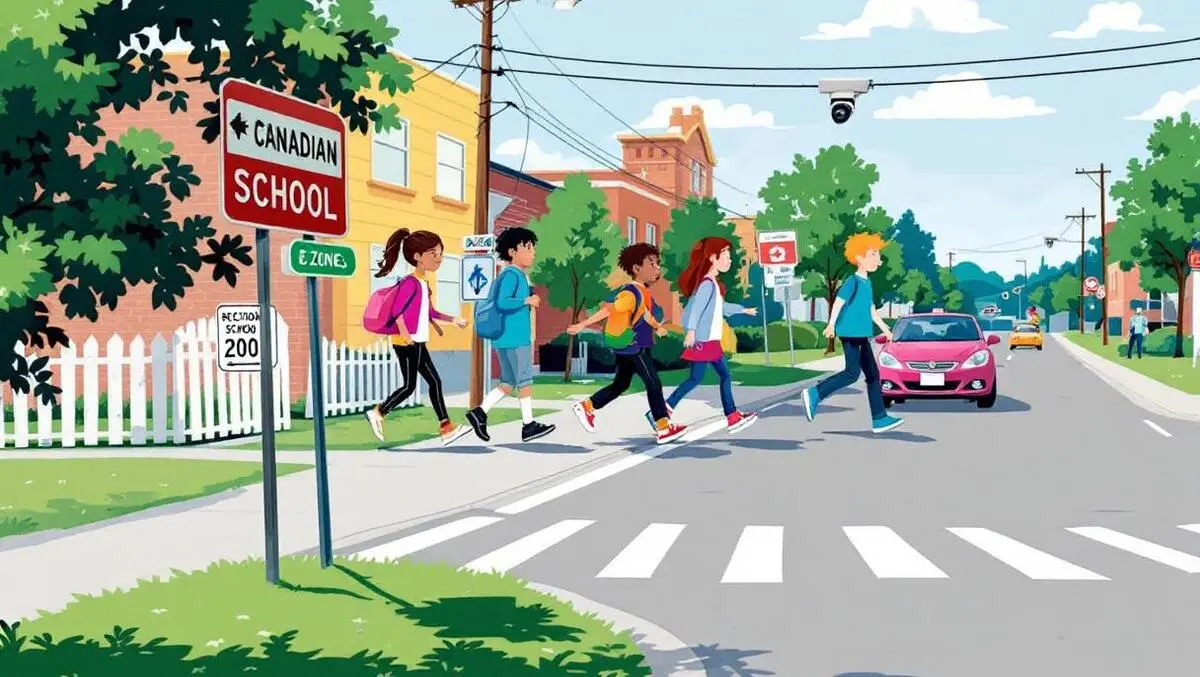
Kitchener deploys AI system to boost school zone safety citywide
Kitchener has become the first city in Canada to implement an AI-powered school zone enforcement system city-wide through a partnership with SenSen Networks and gtechna.
The new initiative covers 64 school zones and aims to improve road safety for children, boost the efficiency of enforcement operations, and ease traffic-related challenges during school hours. According to city officials, the system's launch has doubled enforcement coverage and contributed to smoother traffic conditions at school drop-offs, with a reduction in conflicts between staff and parents.
AI and enforcement
The system employs real-time artificial intelligence combined with License Plate Recognition (LPR) technology to monitor and enforce parking regulations in school zones. Officers can now patrol these areas without leaving their vehicles, allowing for faster and safer response times.
City representatives have reported that the new approach enables officers to enforce school zone rules twice as quickly, ensuring that a larger number of school zones are monitored with greater accuracy. By automating the detection of parking violations, enforcement resources are used more efficiently, and officers' wellbeing is enhanced by reducing direct confrontations with motorists.
"This partnership is a game-changer, allowing us to maximize enforcement efficiency while making school zones safer for children and families."
This statement from Ian Misheal, Manager of Enforcement for the City of Kitchener, reflects the city's intention to address safety and operational challenges in local school zones.
Compliance and community impact
With the AI-driven system in operation, the city has observed several key outcomes: a documented 25-35% increase in parking fine revenue, which officials say indicates improved compliance with school zone regulations. Additionally, all disputed violations identified since the system's launch have been upheld, with a reported 100% success rate in contested cases. This, the city says, is due to the system's ability to gather and present visual evidence for each incident.
By replacing manual patrols with automated detection, Kitchener officials report fewer disputes and confrontations between enforcement officers and parents, which they suggest contributes to a more positive atmosphere around schools and enhances both officer safety and community trust.
City leaders and partnerships
Kitchener worked with international AI firm SenSen Networks and enforcement solutions company gtechna to design and deploy the system. The project is positioned as an example of how AI technology can address real-world urban safety needs, with a focus on delivering measurable operational improvements without eroding public trust or transparency.
Officials from both partner companies highlighted Kitchener's role in demonstrating the application of these technologies at municipal scale. The city's experience is being monitored by other municipalities considering similar deployments, according to information provided by project stakeholders.
Ongoing monitoring
City officials state they will continue to monitor the new system's performance, with an emphasis on maintaining data accuracy, privacy safeguards, and transparency in the use of AI for public safety enforcement. The reported increases in compliance and enforcement efficiency will be evaluated alongside feedback from school communities and city staff.
The deployment of the AI-powered school zone enforcement system in Kitchener is described by municipal leaders as a step towards balancing efficiency, safety, and public engagement in local governance. The initiative is regarded as a demonstration of the potential applications for AI in managing urban environments, with a specific emphasis on school zone safety and officer well-being.


